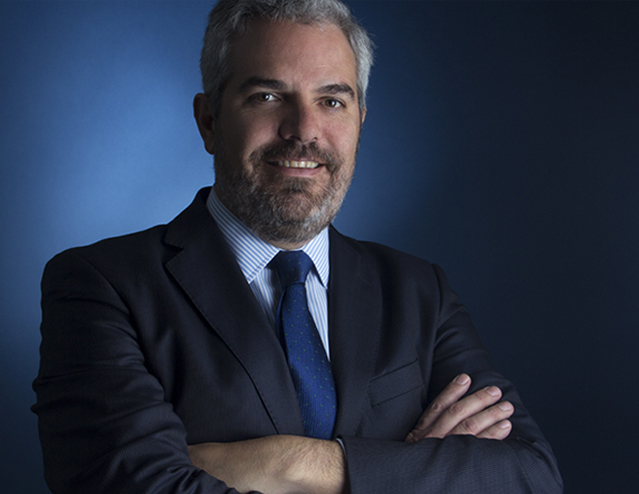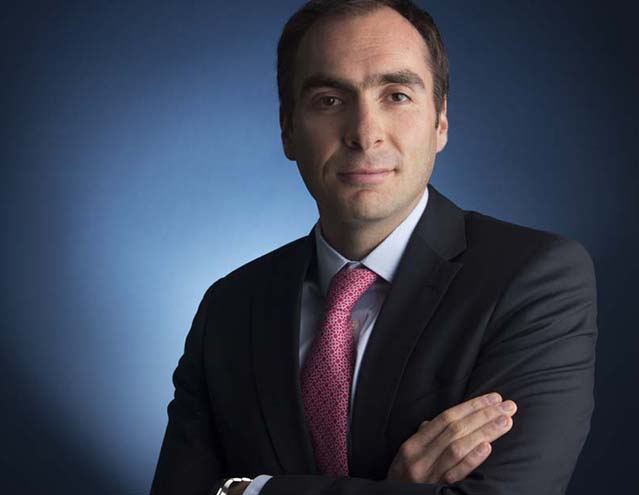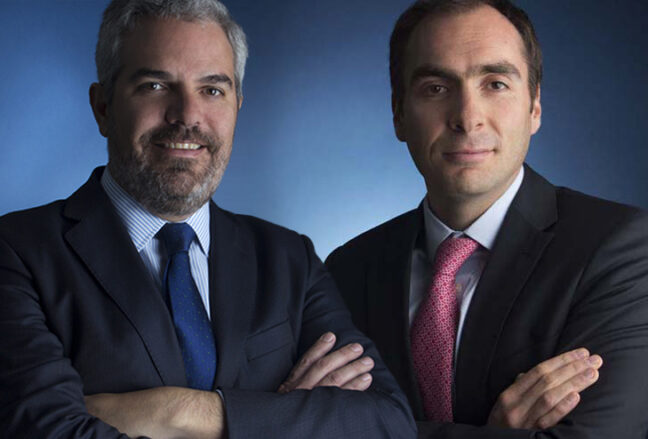TTR DealMaker Q&A with Creel, García-Cuéllar, Aiza y Enríquez Partners Carlos del Río and Humberto Botti

Carlos del Río – Partner
Carlos del Río is a partner in the Mexico City office, his practice focuses on M&A, private equity and real estate.
Mr. del Río has been practicing law for over twenty years and regularly advises large multinationals and domestic and foreign investors and sponsors on acquisitions, investments, joint ventures and divestitures in Mexico across multiple industries and sectors. He has gained much experience assisting Japanese clients in the investments, divestitures or reorganization of their assets in Mexico.

Humberto Botti – Partner
Humberto Botti is a partner in the Mexico City office. His practice focuses on mergers and acquisitions, private equity and capital markets.
Among others, Mr. Botti represents investment banks, private equity funds and corporations in domestic and cross-border acquisitions and divestitures. He also represents underwriters, investors and issuers in equity, convertible securities, mezzanine and other debt investment and financing transactions.
TTR – M&A activity was very strong in México in early 2020, but things changed considerably by the close of 1Q20. How would you describe the current situation in the transactional market in the country?
The first half of 2020 surely benefited from a robust trailing pipeline of transactions that were originated or signed towards the end of 2019 or during 1Q 2020. We perceived a slight dip on transactions originated during 2Q and early 3Q 2020, however, we are seeing a significant increase in deal flow towards this end of year. We are seeing a significant amount of restructuring activity as well as transactions resulting in companies partnering up in order to complement service offerings, reduce and share CAPEX burdens and synthetically integrate production chains. Needless to say, we also have indeed seen steady activity in COVID resilient industries such as Fintech, SAAS and e-commerce.
TTR – What are the prospects for the coming months where M&A market are concerned in Mexico and Latin America?
We expect to see a steady amount of workflow for 1Q 2021 that will piggyback on this strong finish to 2020. Mid-term elections will be held in Mexico next summer and that could provide uncertainty for 2Q; however, depending on the results of the mid-term, investors could double down on Mexico or become more gun-shy.
TTR – Which three sectors do you expect to be most attractive to investors with firepower in 4Q20 and early 2021?
We expect financial services (including fintech), consumer goods and manufacturing to maintain a robust transaction volume.
TTR – Which regulatory measures could help the mexican M&A market recover more quickly?
It is undeniable that the lack of aggressive countercyclical policies and the impact on investor confidence may have worsened the environment for post-COVID recovery and contributed to a “U” shaped recovery in Mexico. Certain key considerations to look out for during the first semester of 2021 include the mid-term elections where MORENA will be looking to keep its majority coalition in the Senate and in the Chamber of Deputies. Such election will undoubtedly be a test on MORENA’s and the President’s first 3 years of government. Other questions in everyone’s mind are how hard the recession will ultimately hit Mexico’s middle class, which is a pivotal economic indicator and driver; and what will Mexico expect from the new Biden Administration as it relates to immigration, the USMCA and the US-China trade dispute. All of these are important uncertainties that could ultimately continue to affect the Mexican M&A market. On the domestic side, it will be important for Mr. Lopez Obrador’s administration and MORENA (clearly led by President Lopez Obrador) to send signals that they not only understand that in a post-COVID economy, investors are more likely to seek more stable regulatory (and political) markets than what Mexico is offering but are also willing to send signals to the markets that are more favorable, generally, to both domestic and foreign investors in all sectors but particularly in the energy, manufacturing and infrastructure sectors. Mexico fundamentals have started to become unstable, so a reversal on policies will be critical to stabilize them to afford investors with attractive growth opportunities.
TTR – Creel, García-Cuéllar, Aiza and Enríquez has advised numerous Private Equity and Venture Capital transactions in 2020. How can you explain the behavior in this market in the course of the year? What factors will need to coincide for this trend to hold in the medium-to-long term?
Notwithstanding the current global environment and domestic political turmoil, we still see financial sponsors having appetite for country risk and continuously evaluate a large breath of potential transactions of several different sizes in Mexico; still, bid/ask spreads in valuation continues to be a major hurdle (particularly more so for the PE type sponsors) due to continuing pressure on margins and FX volatility. We believe the VC sponsors have a higher risk tolerance given that the ticket size at which they invest are usually substantially smaller and thus, have been much more active in closing transactions. From a PE sponsor perspective, we have indeed seen their portfolio companies maintain a good level of acquisition activity aiming at consolidation and vertical integration transactions but have not seen a lot of new direct acquisition transactions from PE firms.
